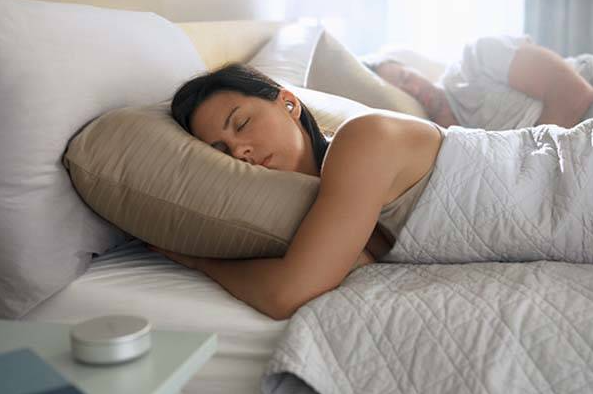

Sleep apnea machines like CPAP, BiPAP, and APAP are quite effective for patients. However, the machine comes with various components which make a noise, like a humidifier. It's hard for patients to get accustomed to a noisy CPAP machine.
Not to mention, parts get brittle over time with continuous use. As CPAP machines provide air pressure, it's no wonder it makes the sound during the process. When the machine is new, it makes less sound compared to when it's old and used.
Thankfully, modern CPAP machines have a silent feature that can reduce noise. Despite this feature, you can still hear noise in modern CPAP machines. So, if your machine is making noise and you are wondering how loud should be the noise level then this blog has you covered.
An Australian physicist invented continuous positive airway pressure, also known as the CPAP machine, in June 1980 for his own personal use. CPAP machines, also known as sleep apnea machines, provide mild/ required air pressure to keep the air pathway to the lungs open.
CPAP device is basically used to treat breathing-related problems such as asthma, sleep apnea, etc. CPAP therapy is effective in sleep apnea treatment.
A CPAP machine is responsible for providing air pressure, due to which, in the process, it makes some noise. The noise intensity a CPAP machine creates mostly depends upon the variant and the type of CPAP machine.
The quietest CPAP machine available in the market is the AirSense 10 AutoSet Card-to-cloud with just 26 decibels. 26 decibels is like hearing someone breathing from a distance of 1m from the person.
Some people find the same CPAP machines loud, while others do not. However, if you are wondering how much sound a CPAP machine makes, then it all comes down to its design and model.
Most CPAP machines run at a quiet volume, which is nothing that a normal sleeper would be bothered by while sleeping. The average CPAP machine, while working, makes a sound of 30 decibels.
It's nearly impossible for a CPAP machine to have a low noise level as various things are attached to it. You can't stop the device from creating noise, but you can choose the one with low noise. Here are some of the tips that might come in handy while selecting a quieter machine:
The design of your mask can have a major impact on the sound it makes when you exhale the pressurized intake air from the CPAP machine. It can greatly affect your partner's sleep if they are light sleepers, especially if the air is directed toward them. Below are some tips to make your CPAP mask quieter:
Regular use of a mask wears them down, and oil deposit act as a catalyst in wearing down the components. So, if you notice that your machine is making more noise than usual, then you should try replacing the old parts with new ones.
There are CPAP machines in the market that can adjust the pressure according to your mask time. Having that setting can ease the noise up to an extent.
Having a mask that fits on your face perfectly can lower the noise as it creates the perfect seal between the mask and your face. Also, keeping the mask clean can help prolong the wear and tear of the mask as bacteria and oil deposits won't tamper with the mask seal keeping it in shape for a more extended period.
If you are suffering from sleep apnea, then it's understandable that you will have to wear a CPAP machine which could make a loud noise. It could be unbearable for your bed partner, especially if they are light sleepers.
Your best bet, in this case, is to have a white noise machine to cancel out the noise that your CPAP machine creates. Also, try choosing the matching which has the lowest decibel ratings.
Leave a comment